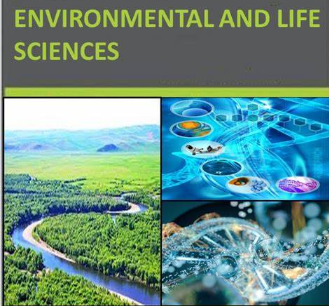Message from the Dean

Dr Mlamuleli Mhlanga (Acting Dean)
About the Faculty
The Faculty currently houses the following four Departments:
1. Public Health and Veterinary Sciences
2. Wildlife Ecology and Environmental Sciences
3. Biotechnology
4. Food Science and Technology
The programmes offered are found under these departments by clicking on the 'Learn more' button under the next heading Our Departments below:
Our Departments
Public Health and Veterinary Sciences
Featured Programmes
- Master of Science in Food Safety and Port Health
- Doctor of Philosophy (PhD) in Public Health
Wildlife Ecology and Environmental Sciences
Featured Programmes
- Bachelor of Sciences Honours Degree in Wildlife Resources Management
- Bachelor of Science Honours Degree in Forest Resources Management
Biotechnology
Featured Programmes
- Bachelor of Science Honours Degree In Applied Biotechnology
- Master of Science Degree in Animal Breeding and Biotechnology
Contact Information
Phone
+263 812 856 976
mmhlanga@lsu.ac.zw
Location
Lupane State University Main Campus
Frequently Asked Questions
Find answers to frequently asked questions about Environmental and Life Sciences
01
What are the entry requirements for Environmental and Life Sciences programmes?
You need 5 O-levels including English, Mathematics, and Sciences, with A-level passes in Biology, Chemistry, Geography, or related subjects.
02
How do I apply to the Faculty of Environmental and Life Sciences?
To apply to the Faculty of Environmental and Life Sciences, please visit our Student Information System (SIS) at sis.lsu.ac.zw. The online application portal will guide you through the entire application process, including programme selection, document submission, and application fee payment.
01
Are there field trips and practical sessions?
Yes, regular field trips and practical sessions are integral parts of our programmes.
02
What laboratory facilities are available?
We have well-equipped laboratories for environmental analysis, biotechnology, and ecological studies.
01
What degree programmes are offered in the Faculty of Environmental and Life Sciences?
The Faculty of Environmental and Life Sciences offers programmes including Bachelor of Environmental Science, Biology, Ecology, and Natural Resource Management.
02
What research areas are prioritized in Environmental Sciences?
Key areas include climate change, biodiversity conservation, and sustainable resource management.
03
What career opportunities are available for Environmental and Life Sciences graduates?
Career paths include environmental consultancy, conservation, research, education, government agencies, and non-profit environmental organizations.
01
What are the tuition fees for Environmental and Life Sciences programmes?
Undergraduate programmes: 400 USD tuition + 356 USD levies (756 USD total per semester). Postgraduate options range from 500-600 USD tuition + 280 USD levies, with total fees between 780-880 USD per semester.
